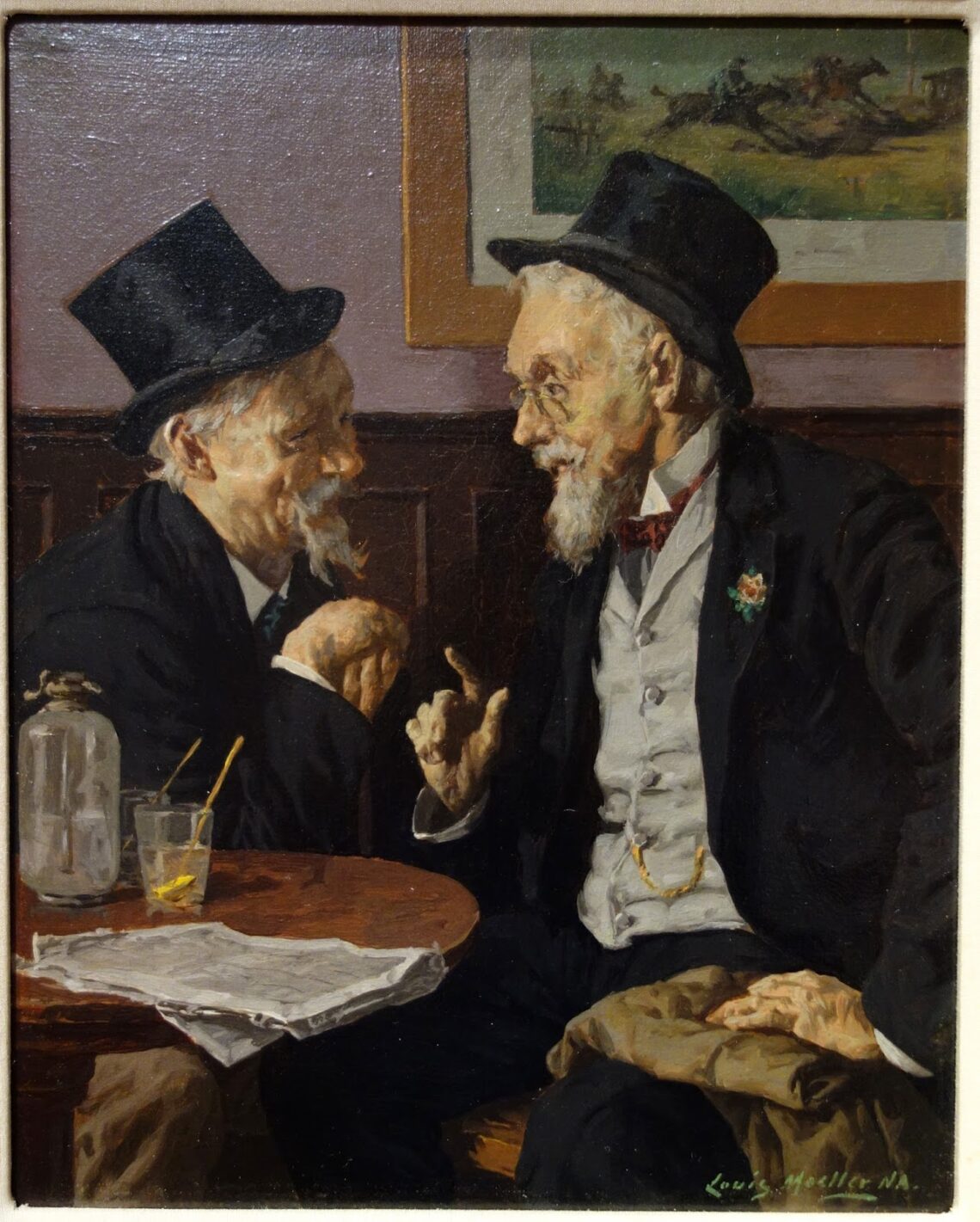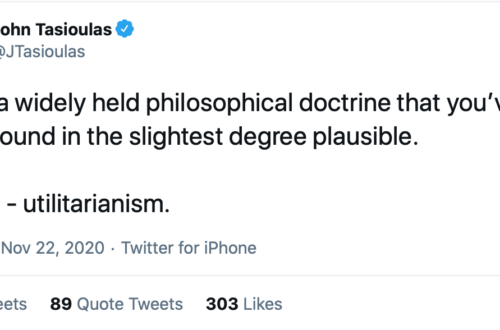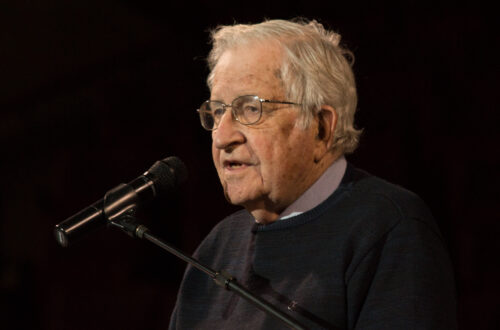“Aphasia, the loss of language following a brain injury, is devastating, and in severe cases family members may feel that the whole person is lost forever.” (Stephen Pinker, The Language Instinct, 2).
Is fellowship possible without language? I don’t mean without the constant presence of language. Two people might not talk for a while but feel close to one another, but what if they never spoke to one another. What if, in the very nature of things, no one spoke? I suppose we could not know what our fellowship would be like. Would we be able to communicate in some way – by looking at each other? Perhaps we really can see each other’s souls in each other’s eyes.
Intuitively, however, such a situation presupposes the possibility of speech. Special looks across a table are special precisely because they are unusual. What is normal about fellowship is some form of communication between people.
Consider the ultimate fellowship – the fellowship between the three persons of the Trinity. There is never a division between them; they are utterly loving toward one another. Yet, it is difficult to think of such a fellowship to be communication-free. Indeed, our only insights into their fellowship is via conversations between one member and another. A paradigmatic example is found in the Lord Jesus’ high priestly pray in John’s gospel. Jesus both portrays an intimate divine fellowship but suggests that those whom Jesus saves will also participate in that fellowship: “…that they may all be one, just as you, Father, are in me, and I in you, that they also may be in us…” (John 17:21).
Of course, it is not likely that anyone can adequately describe what such a fellowship will be like. It is somewhat beyond our imagination. However, it is also difficult to imagine that it would lack conversation.




